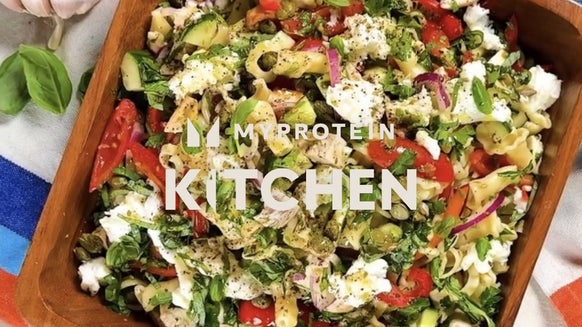
Want to know if you can keep using creatine when cutting fat? Let us break it down for you. Whatever your reasons for cutting fat, talking about it is the easy part, actually doing it is a whole different matter. When cutting, your objectives are obviously to strip away fat, whilst retaining as much muscle mass as you can, ultimately with the aim of looking lean.
Diet, cardio, and different training protocols are all obviously very important, but so too are supplements. Supplements can make such a difference when it comes to changing the appearance of your physique, and indeed, to optimize your performance in the gym, creatine supplements are incredibly popular for gaining mass, but what about cutting? Some say yes, whilst others inevitably say no.
- What is creatine?
- Creatine & dieting
- How does creatine work?
- Should you take creatine whilst cutting?
- Different types of creatine

What Is Creatine?
Creatine is a naturally occurring nitrogenous compound that’s synthesized within the human body. You can also find creatine in foods like red meat and fish.
The liver, pancreas, and kidneys help to synthesize this compound, which is actually a derivative of three separate amino acids, which are: glycine, arginine, and methionine. Several studies and scientific research, have been able to link creatine to muscle growth and repair.
Creatine supplementation allows you to increase the reps and sets you can perform in the gym1, which in time has been shown to increase gains in muscle mass.
Creatine & Dieting
So, the million-dollar question ‘can you use creatine whilst cutting’? Well, in a word – YES. One of the biggest drawbacks associated with creatine, is the fact that, because many forms help to draw water into the cells, they can cause bloating and water retention, which, as a bodybuilder prepping for a contest, is exactly what you don’t want.
Due to this extra water retention, if you begin taking creatine when cutting, you may find your muscles appear ‘puffier’ or your weight on the scale may increase. It’s important to note though that this is excess water retention rather than any fat gain.
To get around this however, experts recommend avoiding creatine monohydrate, and instead choosing a creatine with an increased rate of absorption. Micronized creatine or creatine ethyl ester
For increased rates of absorption, experts also recommend taking creatine immediately after you train, along with a simple sugar. The sugar will lead to a spike in insulin, which will help to shuttle more of the creatine into the muscles. This means that more of the creatine gets used up, rather than going to waste and causing bloating or water retention.
Here's some more info on creatine and weight gain...

Does Creatine Make You Gain Weight?
How Does Creatine Work?
Creatine works by being stored by the muscles in the form of creatine phosphate, which plays a key-role in the ATP energy system. ATP, or Adenosine Triphosphate, is a natural source of energy used by the muscles. By increasing ATP levels, muscle hypertrophy and training intensity can both be increased exponentially.
As mentioned, the body naturally synthesizes creatine. But the main problem is the fact that the amount of creatine that the body can produce is simply not enough to prove especially beneficial. This creatine is speedily converted into ATP by the muscles, but unfortunately, the amounts produced only prove beneficial for a few seconds.
Muscle Growth and Repair
Creatine is extremely popular amongst bodybuilders and strength athletes, because it is a star player when it comes to muscle growth and repair.
So should you take Creatine while cutting
Taking creatine when cutting is beneficial for several reasons. Primarily, it’s due to improved performance in the gym as creatine supplementation will allow you to hit more reps and sets in the big power movements like deadlifts.
In the short term, this could result in a higher daily energy expenditure and increase the likelihood of a calorie deficit - the key factor when looking to strip body fat.
In the long term, the performance benefits that creatine has on resistance exercise, (a key factor in the preservation of muscle mass in an energy deficit), may help improve the aesthetics of your physique whilst cutting
Different Types Of Creatine
Just like there are tons of different kinds of protein, there are also different forms of creatine. Although they’re similar, they do offer different benefits and drawbacks.
The Most Popular Creatine Supplements
This is arguably the most common and popular form of creatine, and generally requires around 5g per day to be effective. Some claim that a loading phase of 3 – 5 5g doses per day is required, whilst others claim this is a waste of time.
This form of creatine is thought to require less than 5g per day to be effective, with 2-3g per day being optimal.
Micronized creatine
Micronized creatine is a form of creatine monohydrate that has been, you guessed it, micronized. This basically means that each molecule has been cut up and divided, which results in a larger surface area, meaning higher rate of absorption into the muscle cells.
Take Home Message
READ THESE NEXT:

Does Creatine Make You Gain Weight?

4 Best Supplements For Weight Gain
What you do and don't need to gain mass....

Top 10 Supplements For Energy To Fight Tiredness
Nutritionist recommends the best supps to give you a boost....

Liam is a certified sport nutritionist with the International Society of Sport Nutrition and is enrolled on the British Dietetics Association’s Sport and Exercise Nutrition register. He has a Bachelor’s of Science in Sport and Exercise Science and is graduate of the ISSN Diploma in Applied Sport and Exercise Nutrition.
Liam is an experienced personal trainer, helping clients reach their health and fitness goals with practical, evidence informed exercise and nutrition advice.
In his spare time Liam has competed in numerous powerlifting competitions and enjoys hill walking, football and expanding his recipe repertoire in the kitchen. Find out more about Liam's experience here.
- Noonan D, Berg K, Latin RW, Wagner JC, Reimers K: Effects of varying dosages of oral creatine relative to fat free body mass on strength and body composition. J Strength Cond Res. 1998, 12: 104-108. 10.1519/1533-4287(1998)012<0104:EOVDOO>2.3.CO;2.
- Buford, T.W., Kreider, R.B., Stout, J.R. et al. International Society of Sports Nutrition position stand: creatine supplementation and exercise. J Int Soc Sports Nutr 4, 6 (2007). https://doi.org/10.1186/1550-2783-4-6
- Olsen S, Aagaard P, Kadi F, et al. Creatine supplementation augments the increase in satellite cell and myonuclei number in human skeletal muscle induced by strength training [published correction appears in J Physiol. 2006 Sep 15;575(Pt 3):971]. J Physiol. 2006;573(Pt 2):525-534. doi:10.1113/jphysiol.2006.107359
- Martin-Rincon M, Pérez-López A, Morales-Alamo D, et al. Exercise Mitigates the Loss of Muscle Mass by Attenuating the Activation of Autophagy during Severe Energy Deficit. Nutrients. 2019;11(11):2824. Published 2019 Nov 19. doi:10.3390/nu11112824







